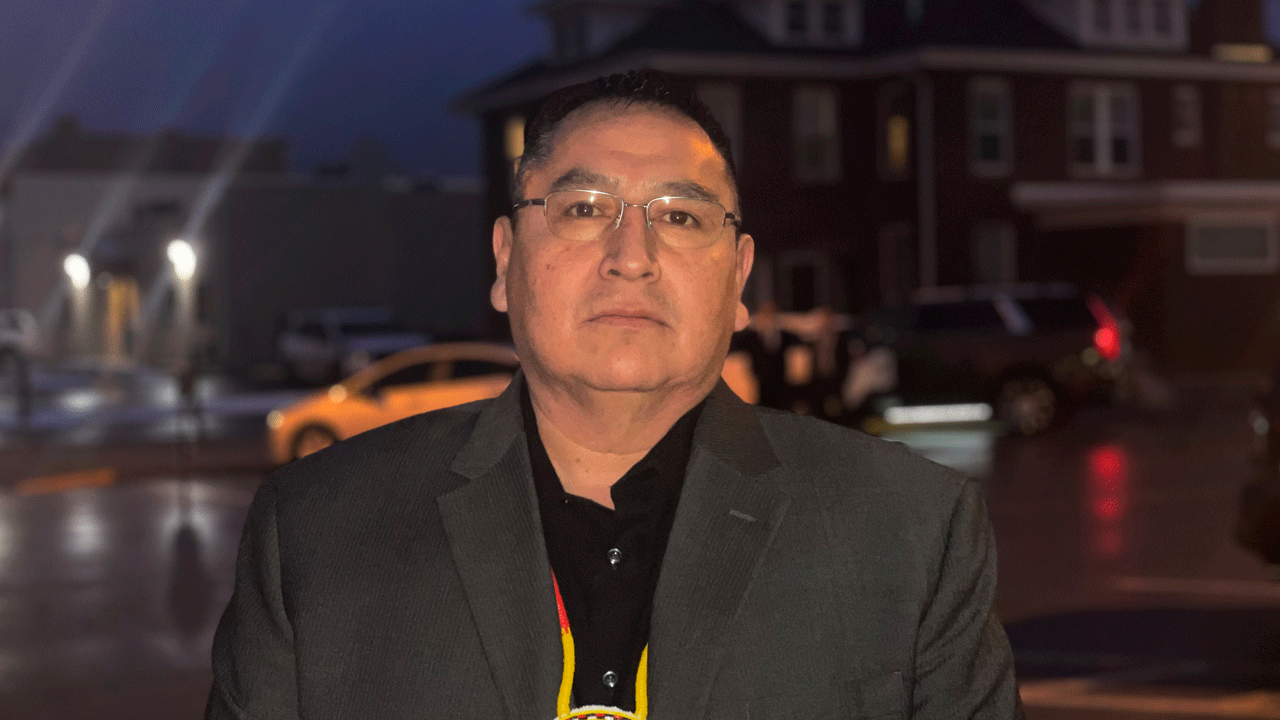Tribes blast South Dakota governor's claim that leaders are benefitting from drug cartels
Relations between South Dakota Republican Gov. Kristi Noem and tribes have become increasingly contentious after Noem accused some tribal leaders of benefiting from drug dealing.

Relations between South Dakota tribes and Republican Gov. Kristi Noem have long been strained, but they have become even more contentious recently as Noem has pointedly criticized tribal leaders, accusing some of profiting from drug dealing and questioning their commitments to children on reservations.
In speeches at community forums, Noem has slammed leaders of the tribes in the state as being more interested in hurting her politically and profiting from drug cartels than improving the lives of children and others amid persistent poverty on reservations.
SOUTH DAKOTA GOV NOEM BANNED FROM TRIBAL RESERVATION OVER REMARKS ON US SOUTHERN BORDER
"We’ve got some tribal leaders that I believe are personally benefiting from the cartels being there and that’s why they attack me every day," Noem said at a forum last month in Winner. "But I’m going to fight for the people who actually live in those situations, who call me and text me every day and say, ’Please, dear governor, please come help us in Pine Ridge. We are scared."
Even for tribal leaders accustomed to rocky relations with the governor, the accusations left them stunned.
"How dare the Governor allege that Sioux Tribal Councils do not care about their communities or their children, and, worse, that they are involved in nefarious activities?" said Oglala Sioux Tribe President Frank Star Comes Out, whose tribe earlier this year banished Noem from the Pine Ridge Reservation and is suing the federal government for more law enforcement resources to tackle crime on the reservation.
Or as Standing Rock Sioux Tribal Chairwoman Janet Alkire put it in a statement, "Governor Kristi Noem’s wild and irresponsible attempt to connect tribal leaders and parents with Mexican drug cartels is a sad reflection of her fear-based politics that do nothing to bring people together to solve problems."
In making her comments, Noem expressed frustration at persistent problems on reservations and desperation to help, but others question why the governor seems to be picking a fight now with tribes. They note members of the tribes typically favor Democratic candidates in the otherwise conservative state and speculate Noem's tough stand is intended to impress presumptive Republican presidential nominee Donald Trump, who has named Noem as a potential vice presidential running mate.
Michael Card, an emeritus political science professor at the University of South Dakota, speculated that Noem's comments might go back to her view about security on the southern border and support for Trump.
Noem has risen fast in her political career, having won every race she has run, said Card, who drew a "linkage" from Noem to Trump in that "we like strong people, and this is a strong woman."
Some tribal leaders also point to Noem’s support of Trump.
"She’s trying to out-Trump Trump by saying something crazy about Native Americans because she knows we’ve had a long history of fighting with the state, and she figures by saying something that might go national, maybe Trump will elevate her a little higher and pick her to be on his team, which is sad," said Democratic state Sen. Shawn Bordeaux, a former Rosebud Sioux tribal council member.
No one denies drug and alcohol abuse are an endemic problem on some reservations, but Noem hasn't provided evidence linking drug cartels to tribal leaders. Her spokesman, Ian Fury, said in an email that "drug cartel presence on Native American reservations" has been documented by the news media for years but didn't respond to inquiries for more specifics.
In response to questions about drug cartels, the South Dakota U.S. Attorney’s Office said in a statement that it works with tribal, local and state officials but didn't specify whether cartels were active on reservations. The U.S. Drug Enforcement Administration and FBI either referred questions to the U.S. Attorney's Office or declined to comment.
In a letter to the U.S. Interior Department and other federal officials last week, Noem called for audits of federal funds given to the nine tribes in South Dakota to understand how the money had been spent. The Interior Department declined to comment.
Also last week, Noem requested a meeting with the Oglala Sioux tribal officials, offering to help address problems facing their reservation. She made a similar request in February. Fury did not respond to an email asking whether the tribe has responded.
The governor also has tried to reach leaders of the Rosebud Sioux Tribe and Crow Creek Sioux Tribe without success, Fury said.
"She continues to have no response from any of those tribes. But she is loving all the conversations that she’s having with their community members – she has appreciated their encouragement and support," Fury said.
The dispute continues a long history of contentious relations between South Dakota's tribes and the government dating to the 1800s when some of the most intensive fighting between Native Americans and U.S. troops occurred in the state.
More recently, efforts in the 1950s to "terminate" or withdraw federal responsibility and administration of tribes led to tension, though ultimately no tribe in South Dakota was terminated, said Sean Flynn, professor and chair of history at Dakota Wesleyan University, and an enrolled member of the Rosebud Sioux Tribe.
Flynn said he thinks Noem could use her voice and position to help the tribes obtain more federal support to tackle problems on reservations, instead of "scolding" tribal leaders and parents.
"It doesn’t seem like a formula for addressing the issue of drug use on reservations," he said.



